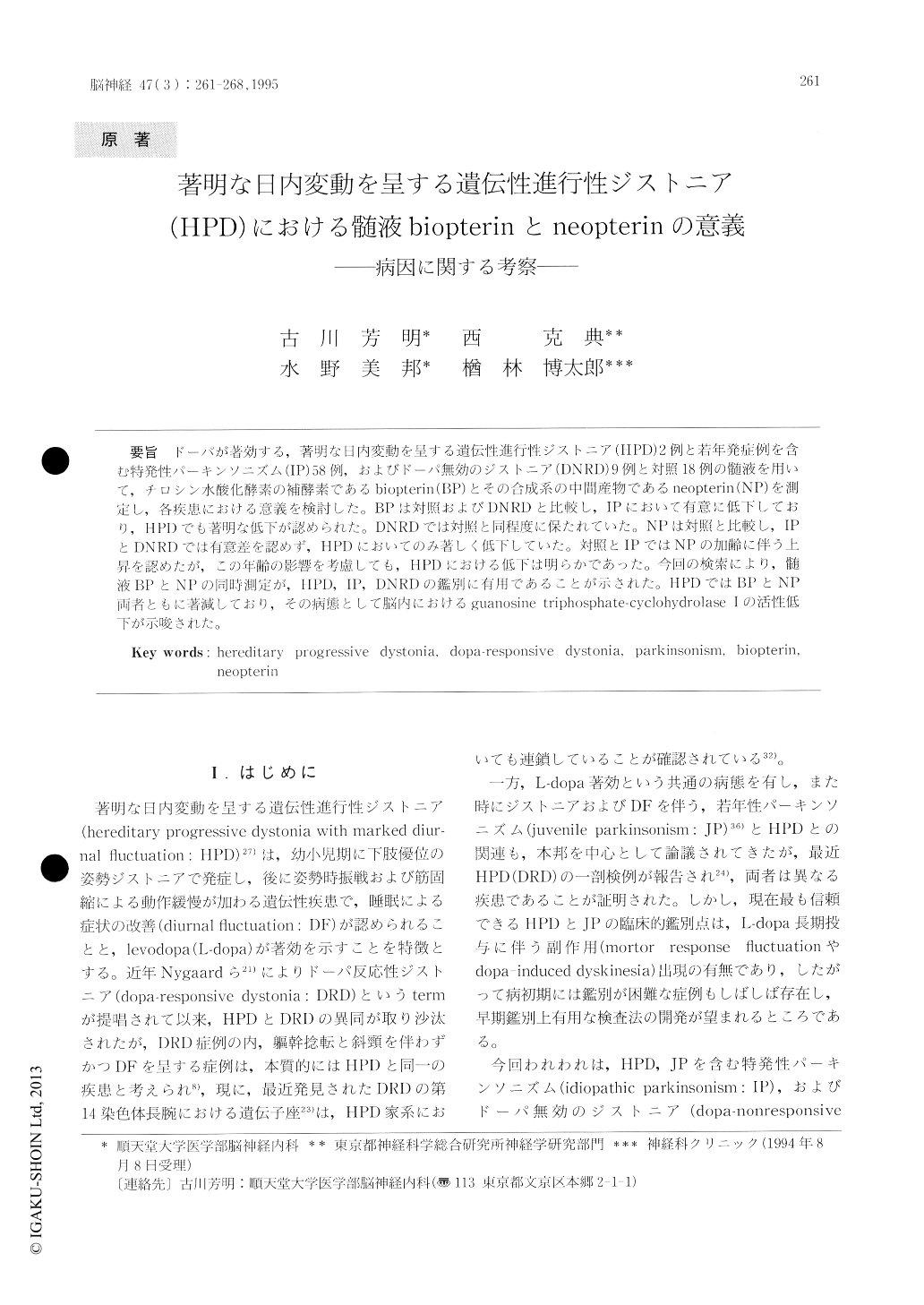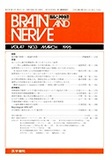Japanese
English
- 有料閲覧
- Abstract 文献概要
- 1ページ目 Look Inside
ドーパが著効する,著明な日内変動を呈する遺伝性進行性ジストニア(HPD)2例と若年発症例を含む特発性パーキンソニズム(IP)58例,およびドーパ無効のジストニア(DNRD)9例と対照18例の髄液を用いて,チロシン水酸化酵素の補酵素であるbiopterin(BP)とその合成系の中間産物であるneopterin(NP)を測定し,各疾患における意義を検討した。BPは対照およびDNRDと比較し,IPにおいて有意に低下しており,HPDでも著明な低下が認められた。DNRDでは対照と同程度に保たれていた。NPは対照と比較し,IPとDNRDでは有意差を認めず,HPDにおいてのみ著しく低下していた。対照とIPではNPの加齢に伴う上昇を認めたが,この年齢の影響を考慮しても,HPDにおける低下は明らかであった。今回の検索により,髄液BPとNPの同時測定が,HPD,IP,DNRDの鑑別に有用であることが示された。HPDではBPとNP両者ともに著減しており,その病態として脳内におけるguanosine triphosphate-cyclohydrolase Iの活性低下が示唆された。
Hereditary progressive dystonia with marked diurnal fluctuation (HPD or dopa - responsive dystonia) is a clinical entity characterized by childhood-onset dystonia followed by parkinsonism, which shows dramatic response to levodopa. How-ever, the same combination of the symptoms is also characteristic of some patients with juvenile parkin-sonism (JP : manifesting below the age of 40), and sometimes the correct differentiation between these HPD and JP patients, in the early course of the disorder, may be difficult.

Copyright © 1995, Igaku-Shoin Ltd. All rights reserved.


